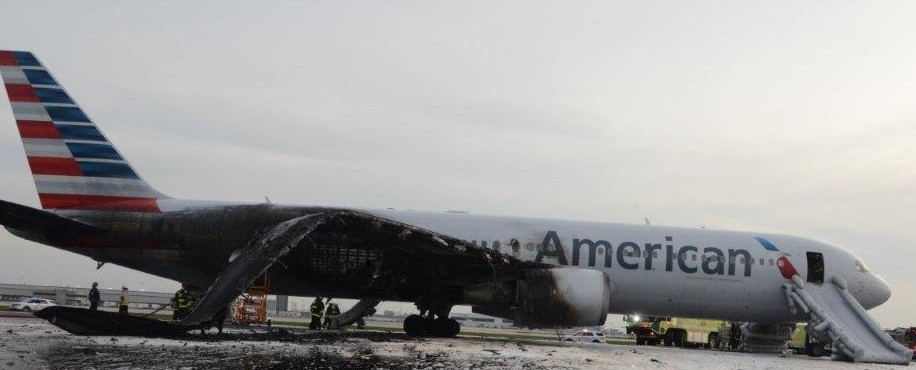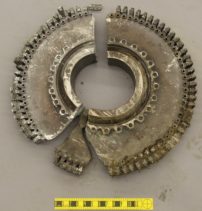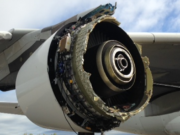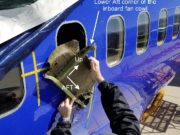
An undetectable subsurface defect in an engine turbine disk led to the uncontained engine failure that occurred Oct. 28, 2016, as an American Airlines Boeing 767-300 was approaching takeoff speed at Chicago O’Hare International Airport, the U.S. National Transportation Safety Board (NTSB) said today. One passenger was seriously injured in the event and the airplane was damaged beyond repair.
American Flight 383 was bound for Miami when the right side, General Electric CF6-80C2 engine failed, sending metal fragments through a fuel tank and wing structure. The flight crew rejected the takeoff as the airliner approached takeoff speed and then stopped the aircraft on the runway. The 161 passengers and nine crewmembers evacuated via emergency slides. “The passenger who was seriously injured sustained those injuries as a result of evacuating the airplane, as directed by a flight attendant, and encountering jet blast from the engine that was still running,” NTSB said.
The NTSB’s report, which was approved Tuesday, details problems with the evacuation, including a lack of communication between the flight deck and the cabin crew, deviation by a flight attendant from emergency evacuation procedures, and the crew’s lack of coordination following the evacuation, NTSB said. In addition, many passengers disregarded preflight instructions and exited the burning aircraft with carry-on luggage.

NTSB determined that the defect in the turbine disk was likely undetectable when the disk was manufactured in 1997. Investigators determined the defect had been propagating microscopic cracks in the disk for as many as 5,700 flight cycles prior to the accident. Although the disk had been inspected in January 2011, the NTSB said the internal cracks were also most likely undetectable at that time because the required inspection methods were unable to identify all subsurface defects.
“Even though there have been significant advances in the safety performance of passenger airplanes over the last few decades, this accident shows that there [are] still improvements that can be made,” said NTSB Chairman Robert L. Sumwalt. “Current inspection methods — those that can fail to uncover a defect in a safety-critical component of an airliner — need a closer look.”
NTSB said the final report would be available in several weeks.
Photo credits: NTSB

